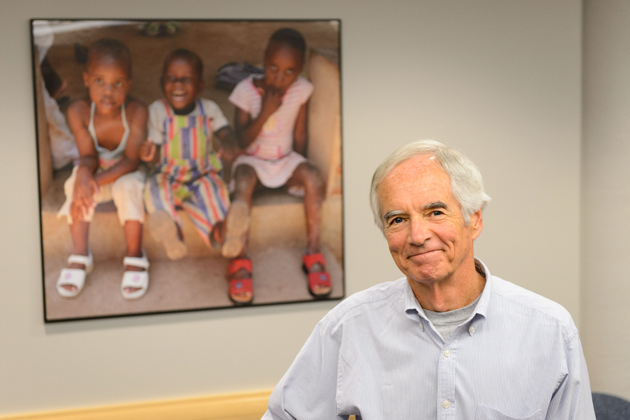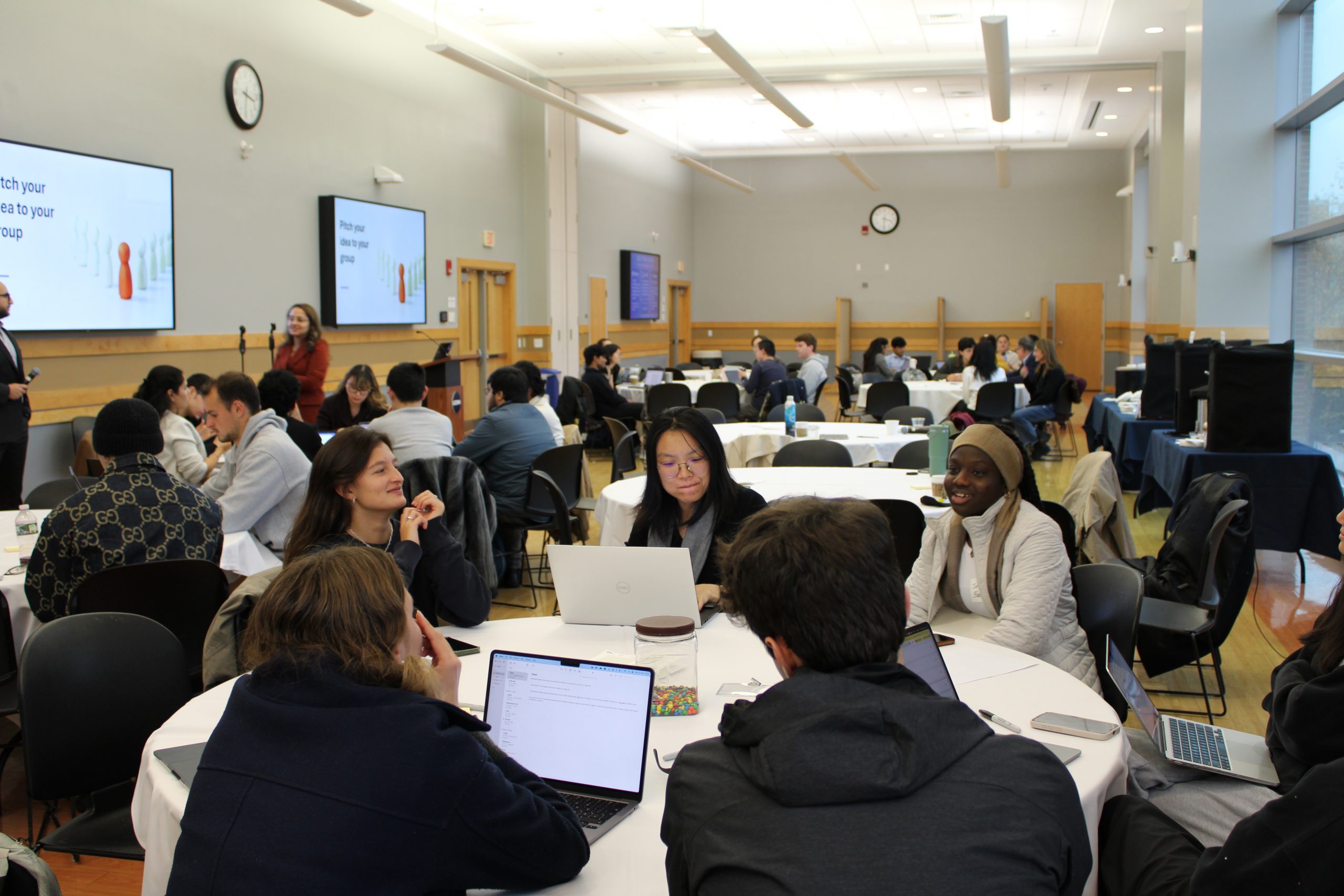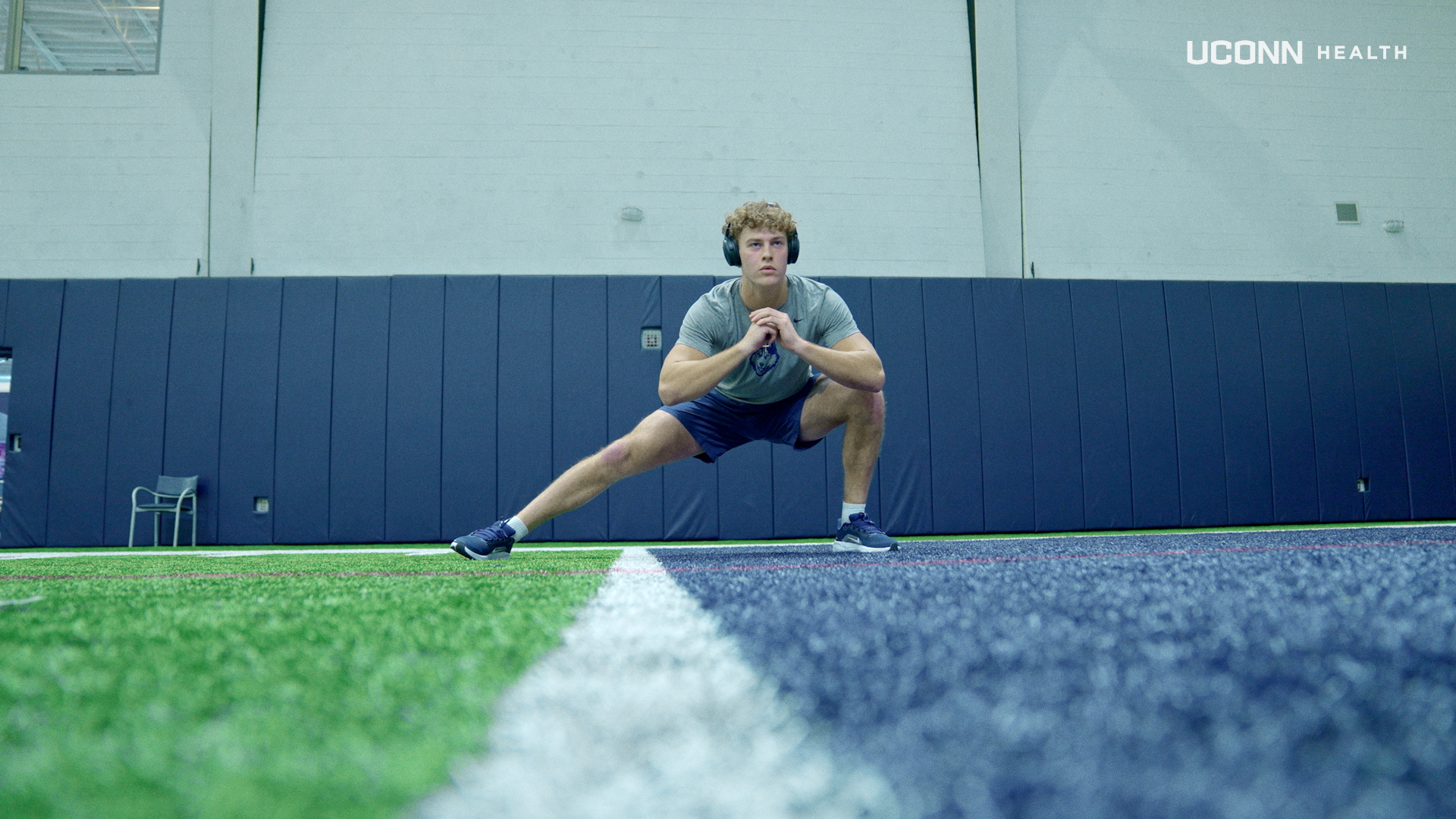
It’s safe to say that Rick Gibbons enjoyed the environment at Dartmouth College in Hanover, N.H. But when he heard that UConn was launching a campaign to hire outstanding faculty from across the academic landscape, he was interested.
Gibbons, a social psychologist and a distinguished professor previously at Iowa State University, and his wife Meg Gerrard, also a professor of psychology at Iowa State, had made the move to Dartmouth in 2008 to pursue their research interests. Gibbons accepted an appointment as professor in the Department of Psychological and Brain Sciences, while Gerrard was appointed professor of psychiatry and co-director of the Cancer Control Research Project at the Norris Cotton Cancer Center, Geisel School of Medicine.
Then UConn announced an ambitious hiring goal and the story attracted national attention.
Gibbons’ research interests include cancer-risk behavior, health decision-making among adolescents and young adults, and the effects of gene/environment interactions on health and health behavior. Those interests contributed to his decision to move to UConn.
“The University’s interest in health behavior and the fact that there are six or more people in social psychology who are also involved in CHIP, which in many ways is a health psychology institute, made an impression,” he says. “I had known Jeff Fisher [Board of Trustees Distinguished Professor and director of CHIP], and Hart Blanton [now a professor of social psychology at UConn] had been one of our post-docs. For both Meg and me, this is where we can do the kind of work we want to do, surrounded by people who share our interests and goals.”
According to the head of the psychology department in the College of Liberal Arts and Sciences, Jim Green, “Rick Gibbons is one of the first people the National Cancer Institute calls when they need advice about research directions in cancer prevention and intervention. His experience and national reputation really appealed to our Center for Health Intervention and Prevention (CHIP). And with our department’s instructional needs in health psychology, which is an area that’s really growing in importance, Rick’s application stood out [to the hiring committee].”
Adds Green, “The fact that Meg Gerrard’s research interests focus on the study of health risk and prevention, particularly as it relates to cancer, means that her skills and interests align closely with those of CHIP. She accepted a research appointment with them, so this is definitely a situation where everyone benefits.”
Jeremy Teitelbaum, dean of the College of Liberal Arts and Sciences, is happy that Gibbons chose to join the UConn faculty. “Rick is a great addition to our Department of Psychology because there’s increasing interest in health psychology here at UConn, and he’s coming in at a senior level with an established reputation,” Teitelbaum says. “I think he’ll make an immediate impact at the research level working with our graduate students, and that is one of the primary goals of the University’s hiring initiative.”
Family and Community Health Study
Gibbons also brings a cohort of more than 3,000 people with him in his role as a principal investigator in the Family and Community Health Study, which began in 1996.
“This study is the largest African-American family panel study ever conducted in the United States,” Gibbons says, “and we’ve been at it for 16 years, with some really impressive retention figures. We started with 900 families divided between Iowa and Georgia, with our ‘target’ being an adolescent that was 10 or 11 years old at the first wave. We’ve recently finished with our sixth wave of data collection, and we’re working on an application for another five years of funding that will take us out into the seventh and eighth waves. The original kids will be in their early 30s.”
Gibbons says the study is looking at how family dynamics and social interactions, along with community characteristics, influence the development of African-American adolescents. Researchers are measuring how risk behavior, such as drug abuse, is influenced by experience.
“We’ve gone in a direction I don’t think anyone else has,” he adds. “We started with adolescents and their primary caregiver. About half of the families had a secondary caregiver that participated [in the study], and about a third of the families had an older sibling that participated.
“But then, at wave four, we added a best friend if there was one who was willing to participate, and at wave five we added romantic partners. So, some of our original families have produced six people for the study.”
In the last wave, Gibbons and his colleagues and field staff at Iowa State and the University of Georgia interviewed more than 3,300 people. The researchers have also added a genetic component to the target group, and are collecting blood samples from the parents who agree to donate.
“The study as a whole is a massive undertaking,” he says, “but we feel that it will not only benefit the participants, it will benefit other African Americans and, ultimately, Americans in general.”
Gibbons says that as a social psychologist, he has had a longstanding interest in discrimination. “One of the most interesting things that has come out of the study so far,” he notes, “is that the best predictor for later risk behavior is the experience of discrimination in early childhood.
“These kids are pretty resilient as a group,” he says, “and many of them are doing quite well, even though they may have grown up with a single mom or had other challenges. But at the same time, the best predictor of later risk behavior, such as drug use, is the responses to questions about discrimination that we got from the kids when they were 10 or 11 years old.”


